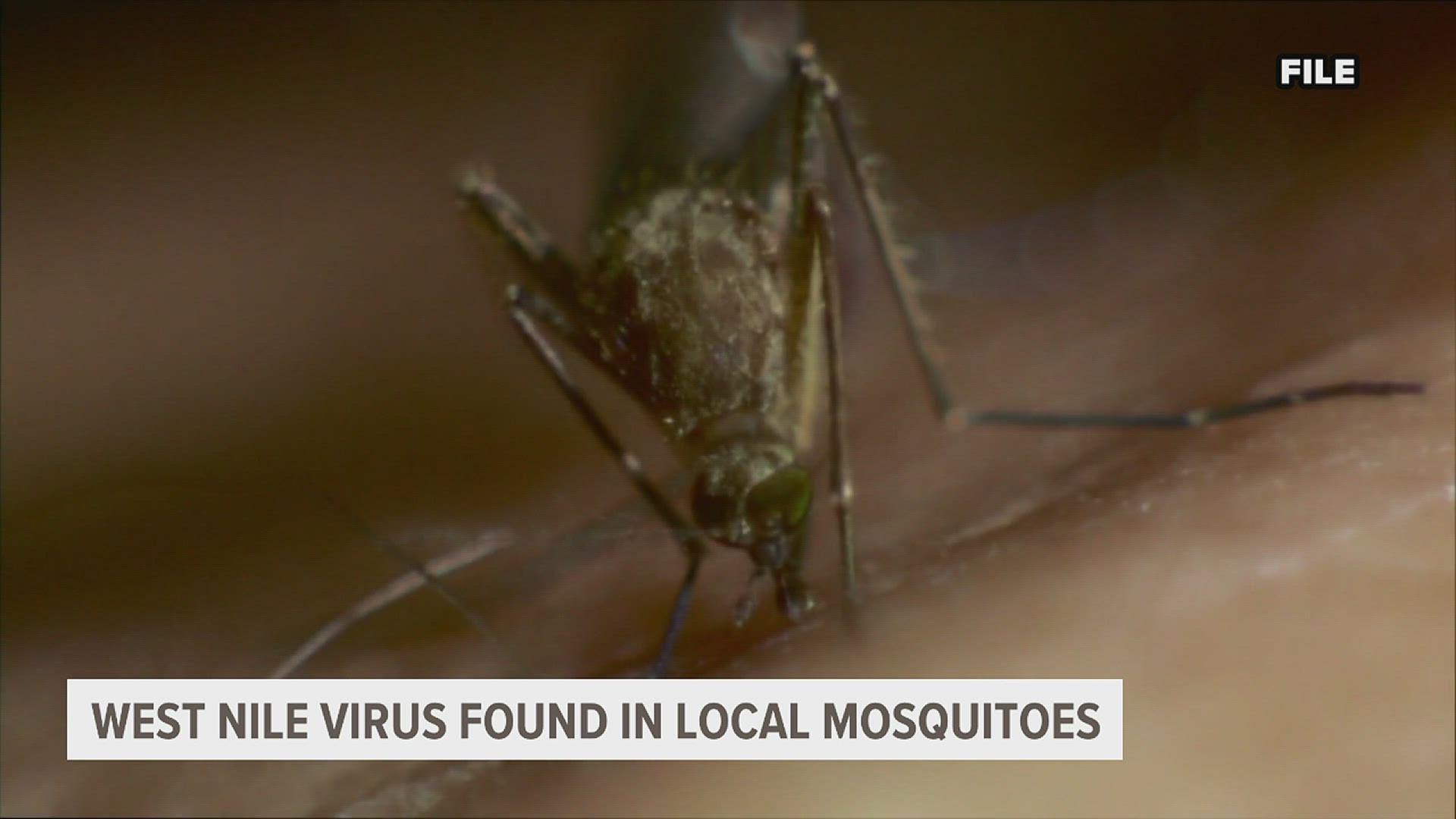ROCK ISLAND COUNTY, Ill. — A batch of local mosquitoes recently tested positive for West Nile virus, according to the Rock Island County Health Department.
It is the first confirmed case for 2023 and there are no reports of human infections.
The positive test confirms the virus is in the community and the department wants to remind the public to "take precautions to minimize exposure to mosquitoes that could be carrying West Nile virus as well as eliminating standing water that allows mosquitoes to breed," according to a press release.
The virus is transmitted through mosquito bites, but the insects have to pick it up from "feeding on an infected bird," the release states.
Symptoms include fever, nausea, headache and muscle aches and can last from a few days to weeks. That said, four out of five people with West Nile virus do not show any symptoms, according to the release. Rare cases of severe illnesses and death can occur. Those over 50 or who are immunocompromised are at a higher risk of severe illness.
The health department recommends implementing the "three R's" to prevent infection: reduce, repel and report.
Reducing exposure can be done by limiting time outside when mosquitoes are active, according to the release. The insects are most prevalent between dusk and dawn.
Other methods to avoid mosquitoes include making sure doors and windows have tight-fitting screens and eliminating "sources of standing water," such as in bird baths, flowerpots, old tires and other receptacles. Mosquitoes breed near this environment.
Mosquitoes can be repelled by wearing shoes and socks, along with long pants and a long-sleeved shirt while outdoors. Insect repellants that contain DEET, picaridin, oil of lemon eucalyptus or IR 3535 should be used as well, according to the release.
Lastly, the department asks the public to report anything that might result in the spread of the virus, such as areas of standing water that have been there for more than a week.
The Rock Island Health Department is also asking people to report sick or dying birds in the community so they can be tested for the virus. Birds that have been hit by a car, ran into a building or have been attacked by another animal are not eligible. Reports can be sent to the department's Division of Environmental Health by phone at 309-558-2840.
More information on steps to prevent contracting the virus can be found here on the Centers for Disease Control and Prevention's website.
Watch more news, weather and sports on News 8's YouTube channel

